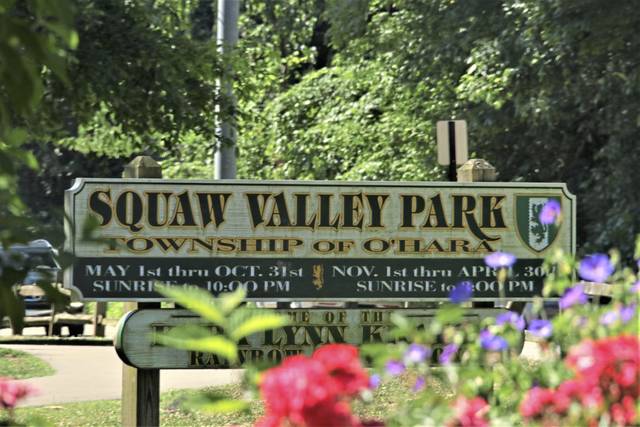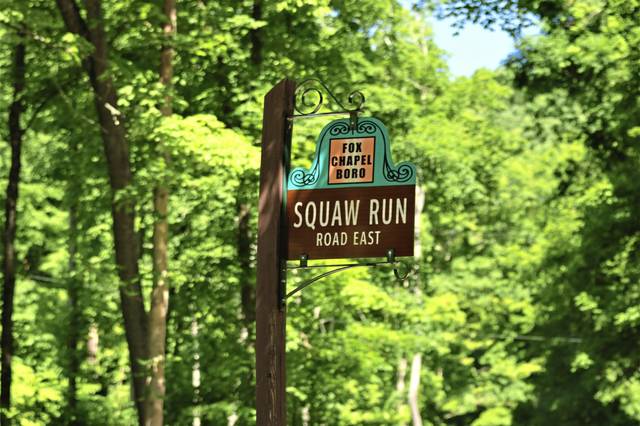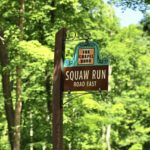Three women — including a member of Fox Chapel council — are leading an effort to drop the word “squaw” from local parks, roads and waterways because it is considered an ethnic and sexual slur against women of Native American descent.
It’s not the first time one of the women, Michele Leonard of Fox Chapel, has tried to get the derogatory word removed.
The main offenders are: Squaw Valley Park in O’Hara; and Old Squaw Trail, Squaw Run Road and Squaw Run Road East in Fox Chapel. A tributary of the Allegheny River, Squaw Run, traverses both communities.
Leonard, who is Native American, said she first tried to get the word removed shortly after she and her husband rented a home along Squaw Run Road in 1989, but her efforts were met by roadblocks.
She said her husband was a year away from retiring from the military and was given the option of being stationed in Pittsburgh or Beckley, W.Va.
“We wanted to be as close to my family on the East Coast as possible, so we picked Pittsburgh,” she said. “We asked where the best school districts in the area were located and ended up in Fox Chapel.”
Leonard said she promised her son, who was about to enter high school, that the family would not move again until he graduated.
“After a year, the woman who owned the house fell on hard times and said: ‘Buy the house or move out,’ ” Leonard said. “So to keep the promise to our son, we decided by buy and live, for the moment, with the word squaw.”
But that didn’t stop Leonard — a lifelong social justice activist — from trying to get the derogatory word removed.
“When I asked (borough officials) how to go about getting the name changed, I was told that I had to contact each resident along the road and determine the cost of changing the word on signs and maps,” she said. “Basically the onus was put on me, a woman of color living in a pristine white neighborhood.”
While the daunting task put an end to Leonard’s efforts at the time, it did not blunt her resolve.
“I would tell anybody who would listen what the word means, what it stands for and what it represents,” she said.
Leonard said she was so embarrassed about the name of her street that she used a post office box so she wouldn’t have to use it for the return address on mail she sent.
The effort to drop the word squaw was revived after Kayla Portis of Sharpsburg organized an anti-racism rally in Squaw Valley Park on June 11 in the wake of George Floyd’s death at the hands of Minneapolis police.
“I met Michele at the Black Lives Matter event and learned from her about how disrespectful the name of the park is to Native American women,” said Portis, who is of African American, Native American and Irish descent. “So I vowed to help her with the mission of getting the word removed.”
A petition drive to change the name has gathered nearly 1,000 signatures.
According to the petition, squaw “is considered offensive, misogynist and racist. Squaw was the bastardization of an Algonquin word for women, by white settlers, and has since been used to disparage indigenous women for centuries.”
Fox Chapel councilwoman Mandy Steele said she was “completely ignorant” of how derogatory the word squaw is to Native American women until Leonard spoke about it during a speech at the June 11 rally.
“It was the first time I heard someone talk about the horrible connotation of the word squaw,” Steele said. “It was an incredibly powerful speech, so I contacted her afterwards.”
Steele said she reached out to the borough manager and other members of council, who agreed to place the issue on the agenda for discussion during the July 20 council meeting.
O’Hara manager Julie Jakubec said the township’s parks and recreation committee held a preliminary discussion about the issue at its June 24 meeting and will take it up again when it meets on July 22.
If the committee recommends that a change should be made, council will have to vote to approve the request.
Jakubec said the recreation committee would engage the community to come up with a new name for the Squaw Valley Park.
Steele urged local elected officials to make the change.
They “have an opportunity to make a significant, positive change in this community that is needed around racial issues,” she said, adding that there is “growing support” to change the park’s name to Unity Park in honor of the rally where the effort began.











